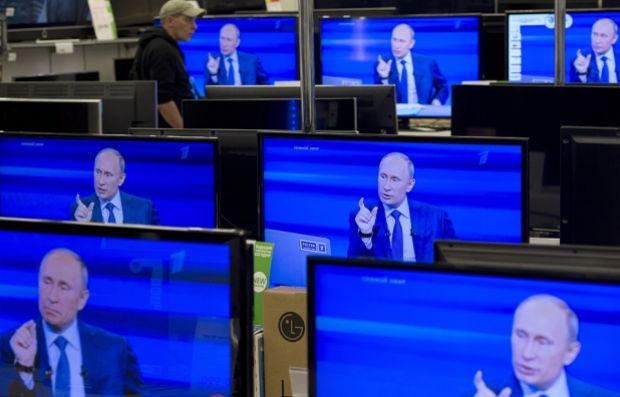
The channel, Current Time, is available on cable, satellite and digital platforms and aimed at millions of Russian speakers in Russia, the Baltics, Ukraine, the Caucasus, central Asia and elsewhere, Reuters said.
Current Time is led by RFE, with Voice of America as a partner contributing some of the content to the new channel.
"We believe our objective and balanced channel will serve as an alternative to disinformation and lies that sometimes we see coming from Russian state-sponsored outlets," Kenan Aliyev, executive editor of Current Time, told Reuters.
Read alsoThe Daily Beast: U.S. preps for infowar on Russia"We are not counterpropaganda at all. We are objective and balanced, verified news. We are an open platform for anyone who wants to engage in a civilized discussion."
The Russian Foreign Ministry did not immediately respond to a request for comment.
Radio Free Europe/Radio Liberty broadcasts news and other programing in 26 languages to Russia, Ukraine, Afghanistan, Iran, and a range of other countries.
Current Time has about 100 editorial staff at RFE headquarters in Prague and correspondents in the field, Aliyev said, and will deliver news, debates and documentaries. The network's name in Russian is "Nastoyashchee Vremya".
In Russia, which has narrowed the space for independent media in the past years, RFE/RL Vice President and Editor-in-Chief Nenad Pejic said digital platforms were the key strategy to win new audience and overcome distribution difficulties.
Read alsoPoroshenko advises EU to create Russian-language TV channel to counter Russian propaganda"The only platform we have is digital, and social networks," Pejic said, adding some viewers would also have access via satellite. "Cable providers do not want to put us on."
RFE/RL said in a statement Current Time had 160 million views on social networks last year under a trial operation.
Pejic said he saw no changes to the RFE/RL operations under the new administration of U.S. President Donald Trump who has said he wanted to improve ties with Russian President Vladimir Putin.
"This company has existed for 60 years and we have a firewall between us and the U.S. government," he said. "Nobody in the U.S. government is allowed to tell us what to do."
Some officials in the State Department and the U.S. intelligence community have said they were worried that Trump is not wary enough of Putin, who considers RFE/RL's efforts "to promote democratic values" an attempt to undermine his government.
Officials in Moscow say Russia has a free and independent media. They deny using state media as a tool for political influence. They say some Russian state media outlets provide a healthy counterpoint to powerful Western media which, they argue, often push an anti-Russian agenda.

